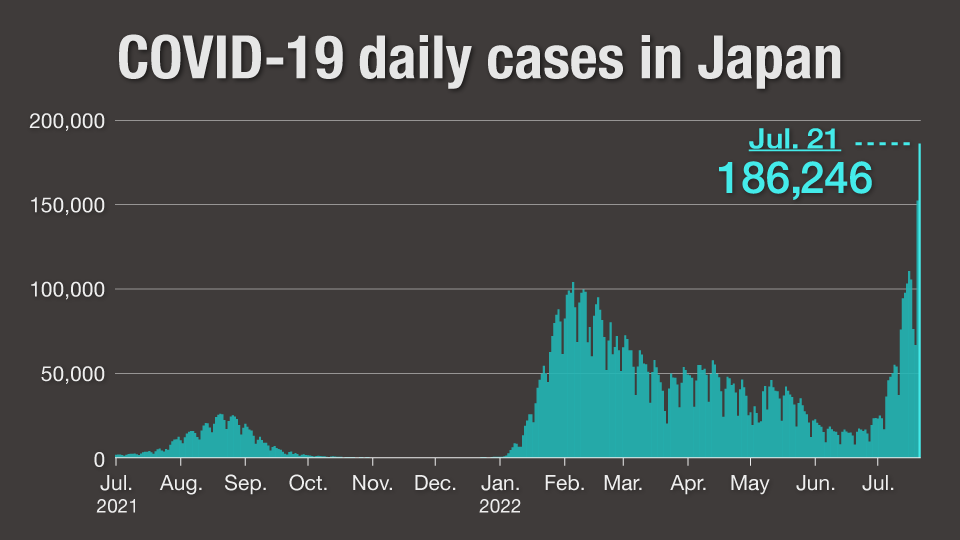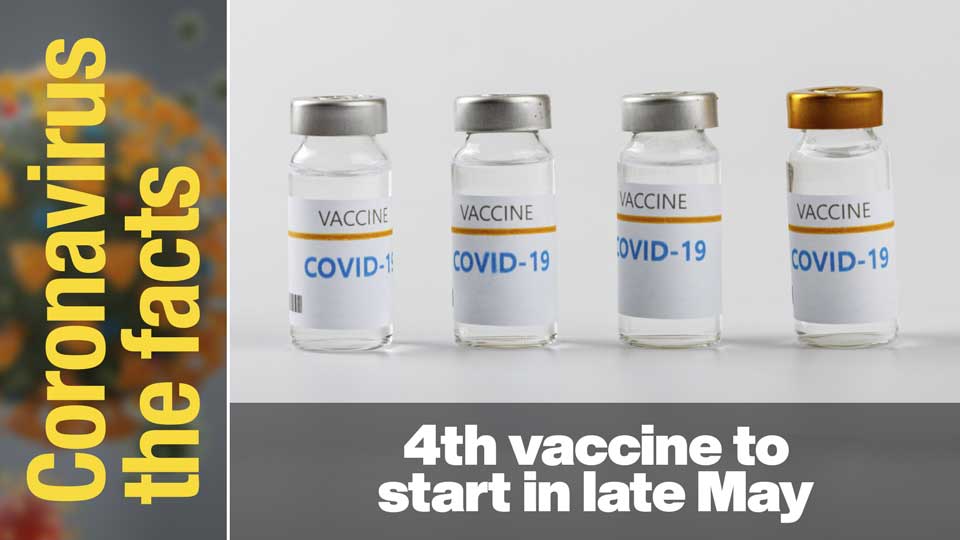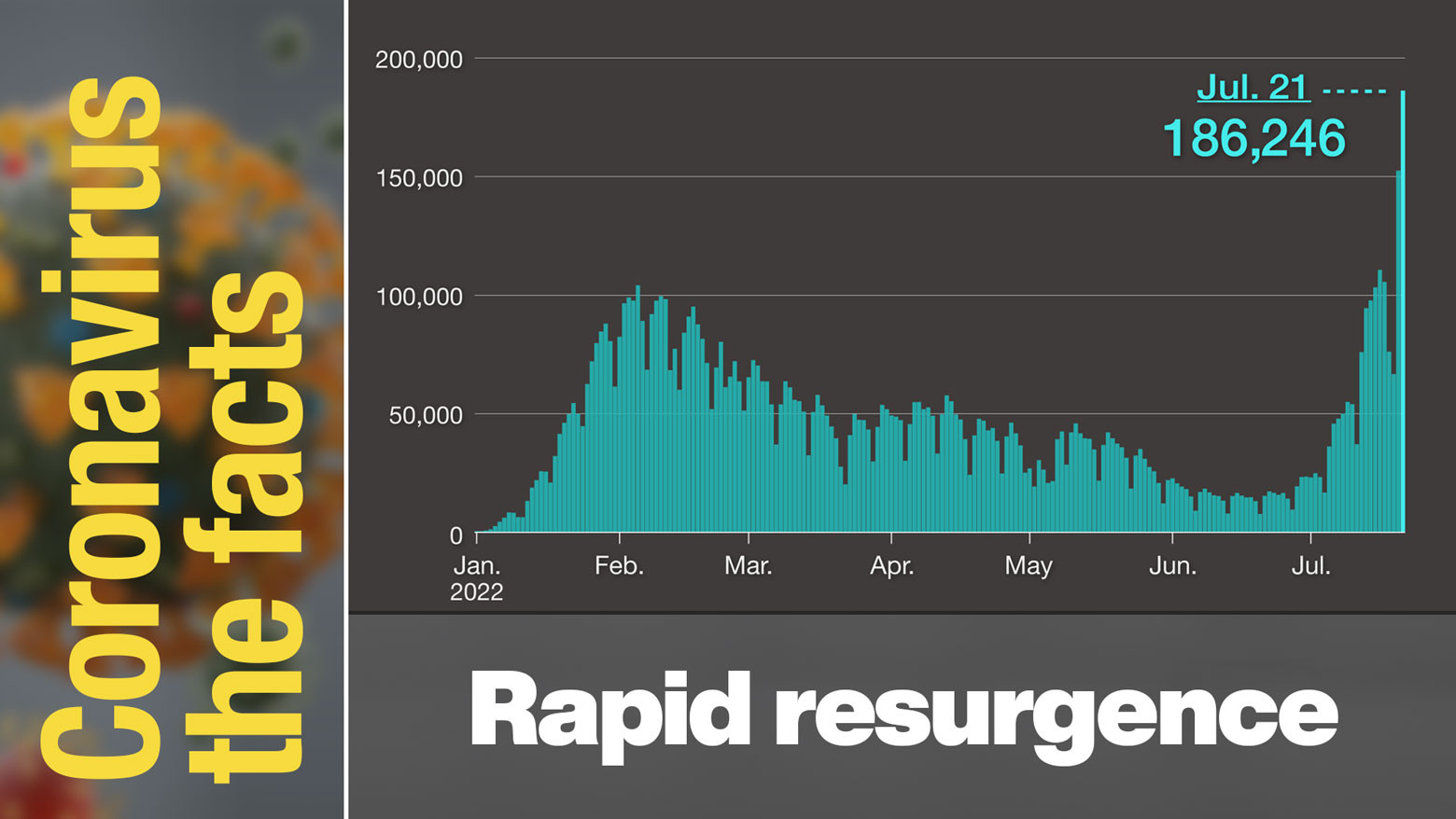This article is part of a series on important coronavirus-related information. Click here to read other installments: #Coronavirus the facts. Find the latest information on everything COVID-19.
Record daily tally but no new restrictions
On July 21, Japan confirmed a record 186,246 cases of the coronavirus. That is almost twice the number of a week earlier. The latest wave is growing much faster than the previous one, but for now the number of seriously ill patients is lower. Children and people in their 20s and 30s drove the surge initially, but infection rates have since become more evenly spread.
On the same day, Tokyo reported a record 31,878 cases, prompting authorities to issue a red alert for medical facilities in the capital. Okinawa is also facing a critical strain on its medical system and plans to impose restrictions.
The central government has not changed its stance that there is no need to introduce new restrictions on movement. It says its priority is to maintain economic and social activity, and strengthen the medical system to protect people such as the elderly who have the greater risk of developing serious symptoms.

Factors behind surge
Toho University Professor Tateda Kazuhiro, a member of the Japanese government's panel of experts on the coronavirus, says a confluence of the following factors is causing the rise in cases.
- People have been moving around more since the start of July, resulting in more person-to-person contact.
- The emergence of the Omicron subvariant BA.5, which is believed to be more contagious than the previously dominant BA.2.
- Protection from vaccine booster shots is starting to wane.
Japan's basic measures
The government's measures to contain the surge include the following:
Vaccines
- Encouraging people, especially the young, to get third vaccine shots. As of July 21, more than 80 percent of people had gotten their first two doses, but only 62.4 percent had received a third. Among people in their teens and 20s, the take-up of booster shots is even lower, falling below 50 percent.
- Making fourth shots available for medical workers and staff at facilities for the elderly and people with disabilities. Fourth doses are currently only being given to people 60 and older and those with underlying conditions.
- Extending operations of large-scale vaccination centers in Tokyo and Osaka by the Self-Defense Forces.

*Related article: Japan to roll out 4th coronavirus vaccine shots from late May (May 24, 2022)
Testing
- Setting up free coronavirus testing sites at more than 100 locations, including major train stations and airports.
- Encouraging people to test before they return to their hometowns for summer vacations.
Basic anti-infection measures
- Encouraging people to maintain anti-infection measures, including wearing masks indoors, disinfecting hands, and ventilating rooms that are air-conditioned.

*Related article: How can we keep our rooms ventilated? (Aug. 30, 2020)
Plans
- Japan is considering subsidies for medical institutions to shore up services.
- It may shorten the self-isolation period for close contacts from seven days to five.
- It may also enable people with symptoms to test at home before going to hospital.
This article is accurate as of July 22, 2022.
